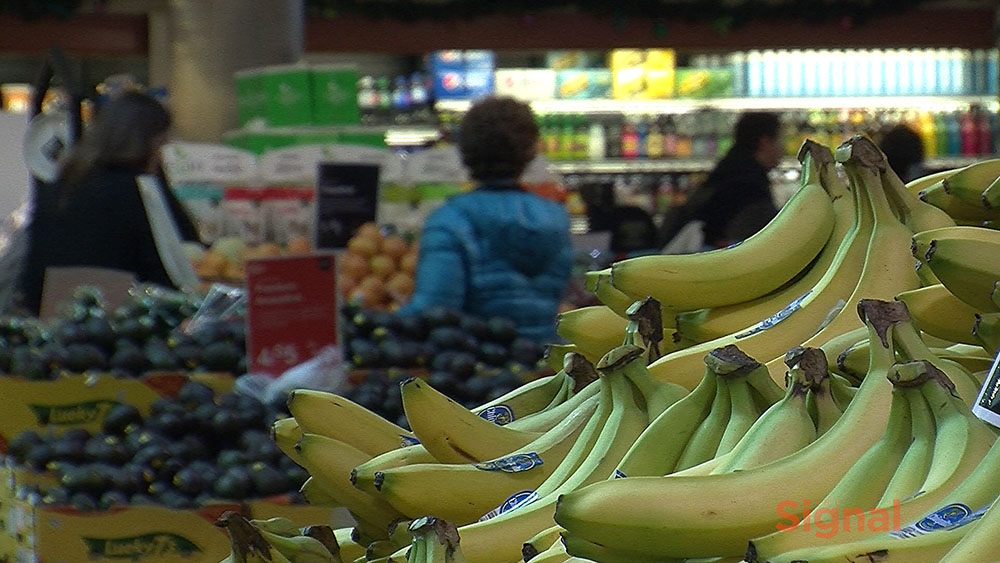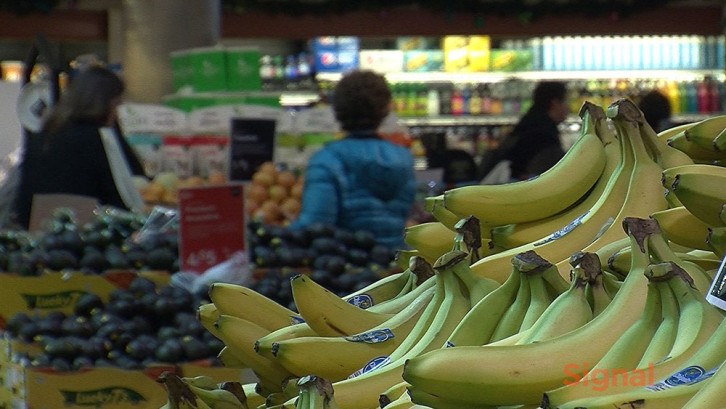Food
Bananas face extinction from new pathogen
Tropical Race 4 (TR4) could wipe out global banana supply within the next decade

caption
Bananas are a popular item at Pete's Frootique.
caption
Bananas are a popular item at Pete’s Frootique.The world’s most popular banana species is in danger of going extinct, which is causing concern for banana lovers worldwide and close to home.
A recent study funded by the Interdisciplinary Research and Education Funds (INREF) of Wageningen University in the Netherlands found that a new pathogen called Tropical Race 4 (TR4) is threatening global production of the Cavendish species of banana.
Dalhousie University professor Rajesh Rajaselvam, who teaches classes in economic botany, likened the Cavendish extinction to the Irish potato famine. He said the circumstances are similar.
“Millions of people depend on the banana for sustenance and economic livelihood. It’s only going to get worse,” he said. “Soon there will be nine billion people on the planet. What are we going to feed them with? With the Cavendish gone, we’re going to have to find a substitute.”
This isn’t the first time a banana strain has gone extinct. According to the Wageningen researchers, in the 1960s and 70s, a similar pathogen called the “Panama Disease” wiped out the Gros Michel banana.
The Gros Michel was used and consumed around the world at that time. The Cavendish, a species from China, took its place as top banana after the blight.
The study states the banana is one of the most important food commodities in the world. The banana ranks fourth behind wheat, rice and corn in total tonnage of produce consumed annually around the world.
Rajaselvam said there’s no need to panic, but the blight could eventually affect global banana supplies.
“It may not happen this year or next year, but we might see changes within the next decade,” he said.
Mark Simpson, the produce manager at Pete’s Frootique in Halifax, said the thought of losing the banana is scary.
“Bananas are very unique,” he said. “They’re also a very popular produce item.”
Simpson said bananas are one of Pete’s best selling items throughout the year.
“It wouldn’t put us out of business or anything like that, but it would certainly be damaging,” he said.
- Filmed and edited by Nick Holland
Other Haligonians expressed their concern at the idea of no more bananas. Tara Gabriel Fralick said it was disappointing to hear bananas were in danger.
“Bananas are a necessary element – they’re nutritious,” she said. “We need to have them in our diet.”
High school student Alex Jackson also sees the importance of bananas, even if he doesn’t eat or particularly like them.
“I think there would definitely be people that would be upset that they couldn’t eat bananas any more,” he said.
Most people the Signal questioned were not aware of the threat to the Cavendish banana, but expressed a desire to help preserve the species.
However, the researchers say there may not be anything anyone can do about it. All Cavendish bananas are so genetically similar, if one banana is susceptible to disease, all are. The Wageningen study says the blight may serve as a wake-up call to researchers – develop a new disease-resistant banana or risk wiping out a vital food source and cash crop.
About the author
Guillaume Lapointe-Gagner
Guillaume Lapointe-Gagner is a freelance journalist based out of Halifax. He currently attends the University of King's College master of journalism...
